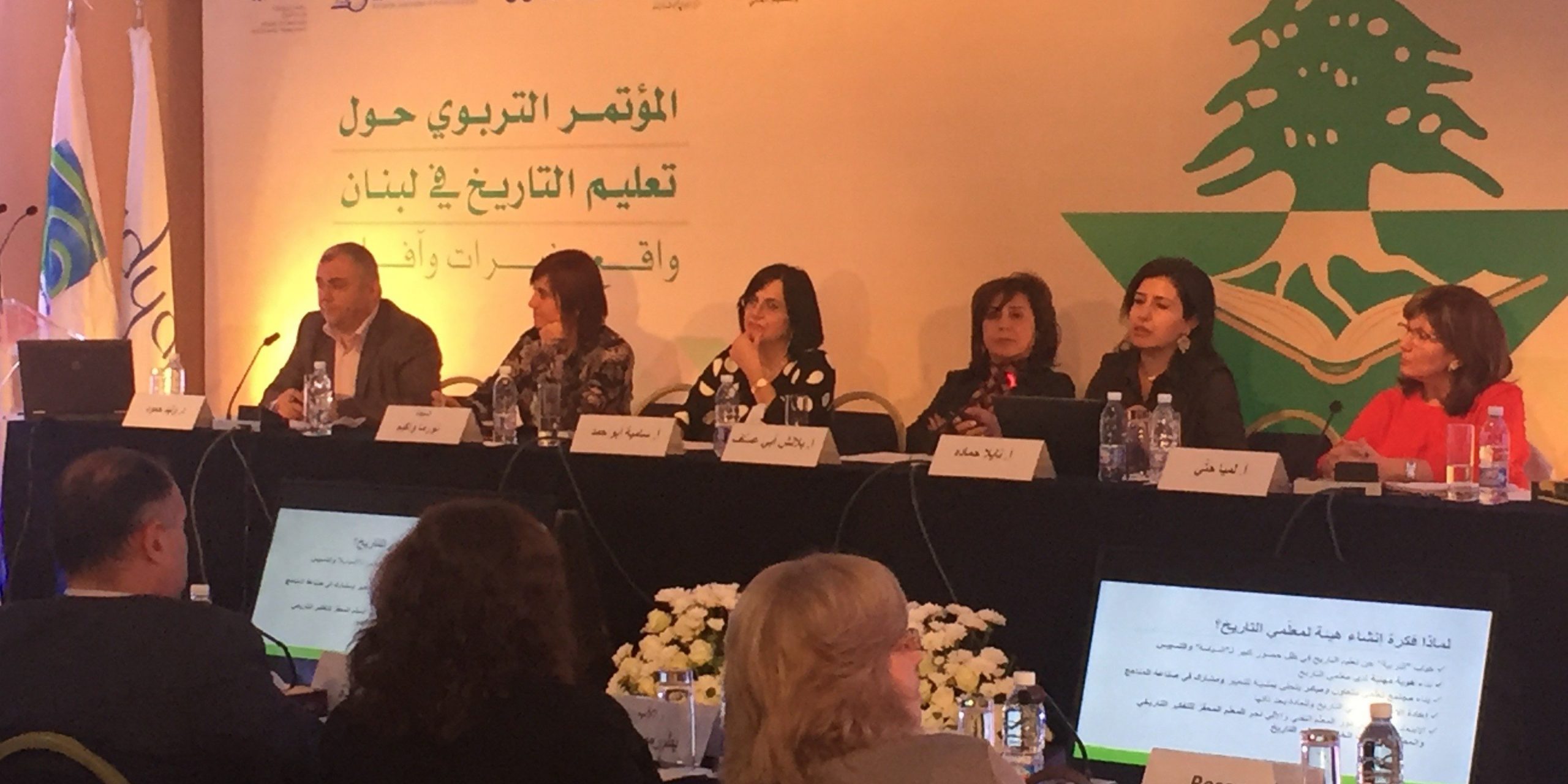The ministry of education and higher education, with the support of the center of educational research and development, the British Council, the institute of citizenship and diversity management, and EUROCLIO organized a conference on teaching history in Lebanon: reality, experts and initiatives on the 30th of October 2017; attended by government representatives as well as political parties representatives, for history experts, teachers and other representatives of organization working on history in Lebanon, to discuss the future steps in the creation of a new history curriculum.The ministry of education and higher education, with the support of the center of educational research and development, the British Council, the institute of citizenship and diversity management, and EUROCLIO organized a conference on teaching history in Lebanon: reality, experts and initiatives on the 30th of October 2017; attended by government representatives as well as political parties representatives, for history experts, teachers and other representatives of organization working on history in Lebanon, to discuss the future steps in the creation of a new history curriculum.
The conference tackled the issues facing history education in Lebanon from various perspectives. In the opening session, H.E. Mr. Hamadeh, Ex minister Hariri, and Father Fadi Daou addressed the audience. Mr. Hamadeh hoped that a new history curriculum will be issued by the end of this academic year. The following sessions was a platform for political party representatives to share their party’s visions and aspirations for the curriculum. In the third session, researchers presented studies on the situation of history education in Lebanon. Dr. Tawa and Dr. Abdullah shared the results of the survey conducted by CERD in around 300 schools. Afterwards, Dr. Abdel Massih elaborated on the various educational approaches possible to teach history in Lebanon. He stressed on the importance of flexibility in the curriculum. Furthermore, he explained that history and history education needs to be problematic and not narrative. The final two sessions presented experiences from practitioners. These experiences included the historical thinking approach advanced by LAH, the Teaching Divided History adopted by CERD and British Council, the International and the French Baccalaureat, Euroclio’s experience and practices from Lamia Hitti.
One of the most significant parts of the conference was the session conducted by educational specialist from various political parties. In this session, political parties’ representatives explained how their parties or political movements perceive the issue of teaching history in Lebanon. Here are some major ideas raised in this session:
- The methodology of teaching history is key in engaging student.
- We should focus on research, how to use sources and the Internet, and improve the overall learning experience of the students, instead of focusing on memorization.
- How to benefit from the past in order to build a national identity and a sense of belonging to Lebanon.
- Sectarianism and political affiliation are taking priority in Lebanon.
- In fact, many histories have followed the bandwagon effect during their times, and produced wrong assumptions on historical events and figures to serve a specific propaganda.
- The civil war is not the only divisive topic in our history. Other events have been reported incorrectly and need be revised.
- We must not omit or alter any fact or event in the writing of history to serve a political or sectarian agenda.
- History needs to be factual, complete and continuous.
- The aim of teaching history is the growth of the students and society, and intellectualization of the public, and the strengthening of our national identity in a world dominated by globalization.
The conference was a continuation of a long process towards the development of a history curriculum.

